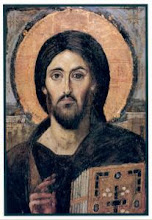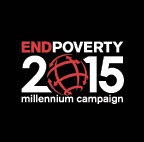Monday, August 26, 2013
I was Born on the Wrong Side of the Railroad Tracks
Why on earth do you live over there? That was one of the
first questions I was asked when I began my ministry in Richmond, Virginia some
nine years ago. Apparently I lived on the wrong side of the James River – the
south side rather than the north side. Immediately the feelings of inadequacy
and inferiority washed through my mind. I flashed back to childhood memories of
the same kind of scenario.
As a child I was raised on the “other” side of the railroad
tracks. One might say, “The wrong side of the tracks,” ironically, the south side
of Augusta, Georgia. I was also raised as a “Cradle Episcopalian” yet as a
child attended a Baptist school. Still, because I was not the right
denomination, I was singled out and separated from many of the students in my
class.
Isn’t it interesting how we as a people naturally build up
walls and dividers that separate us from one another? Isn’t it interesting how
we label one another due to the simplest circumstances such as geographical
location, sexuality, race, religious affiliation, denominational affiliation,
socio-economic status and etc?
The act of labeling is painful and causes much internal
strife. It is cruel and unjust, yet it is a large part of our social fabric. In
much of today’s society it matters where we live, how much money one makes, our
genealogy, sexuality and even religious affiliation. Labeling creates
embarrassment and frustration for those it affects. Labeling is cruel, hurtful
and wrong. It immediately classifies a person as “less than” by those in
society who set the social, economic standards and norms in life.
Labeling takes many nasty forms. It affects all of us
whether we like it or not. I’m as guilty of labeling as anybody else. I’ll
never forget standing in downtown Augusta years ago. I was minding my own
business along with my family. We were enjoying looking at the artwork on
Artists Row. While standing outside on the sidewalk a man who was obviously a
street person approached me. He saw my clerical collar and that is what drew
him to me. Before he could utter a single word I had already made up my mind
that this “bum” wanted money to buy alcohol. Wow! Could I have not been more
wrong regarding the matter? Before the man spoke I quickly told him that I was
so sorry but had no money and couldn’t help him. I’ll never forget the
perplexed and even hurt look in the man’s eyes. There he stood all dirty and
dingy. His hair was matted and probably hadn’t seen a comb in quite
sometime. His shoes were literally on
their last thread and he walked toward me with a slight limp and insecure step.
Rather than ask for money the man said, “Father, I don’t want any money. My
name is James and I too was once a spiritual man of God. All I want is for you
to say a prayer for me. Will you please say a prayer for me Father?”
As one can imagine I stood there dumbfounded and
embarrassed. I had labeled this man as a dredge on society, seeking only the
financial resources he could find to buy alcohol. I quickly apologized to him
and we said a prayer together. My instinctive nature was to label and
categorize this person simply by the way he looked and how he lived. I didn’t
know his story and probably didn’t even consider asking him to share. I simply
assumed he was a street person and in doing so realized I categorized all such
people into one unappealing class.
The man left without asking for a dime. All he wanted was a
prayer; a simple prayer from a priest he happened to see standing on the
sidewalk.
Labeling is something that is taught. It is a learned
behavior that many of us either experience while growing up or are influenced
by others. The painful look in that man’s eyes reminded me of my own painful
experiences and how I had become numb and conveniently forgotten the adverse
affects such actions have on others. These are learning experiences that are
tough and even painful, yet important if we wish to break the vicious cycle of
labeling our fellows.
Yet we can take comfort in the fact that our Lord Jesus
Christ was raised on the “wrong side of the tracks” as well. Jesus was raised
in Nazareth. We hear it written in Scripture, “What good could come out of
Nazareth?” Even Jesus was painfully labeled and looked down upon because of his
geographical abode. Of course this did not affect our Lord’s ministry and love
of the poor, the outcast and the marginalized. Jesus often associated with
those in society labeled as sinners. He never allowed his own personal
experiences of being labeled to stop him from crossing the boundaries (or
should I say tracks) of society.
God sent his only Son into the world to save the world, not
condemn the world. So why should we condemn those we do not understand? Why
should we judge those who are broken, marginalized or simply come from the
“wrong” section of town? Who are we to place labels on any one. Christ calls us
to look into our own hearts and repent of our own sins. We all carry spiritual
baggage and debris. None of us are any better than the other. We are all God’s
children and we each have a right to be in this world.
Shakespeare said, “All the world’s a stage, all the men and
women merely players.” He forgot to mention that we are sometimes the chief
critics. It is easy to see the flaw in every person, every situation and label
them accordingly. What I have learned over the years is that there is a bit of
good in the worst of us and a bit of bad in the best of us. When we judge
others we are placing labels on God’s handiwork. Essentially what we are saying
is that we know better than God.
Subscribe to:
Post Comments (Atom)
Trinity Wall Street Conference Center Chapel

Our prayers rise like incense into heaven
Church of the Good Shepherd, Augusta, Ga.

"...And the sun shall not strike you by day, nor the moon by night."

























No comments:
Post a Comment